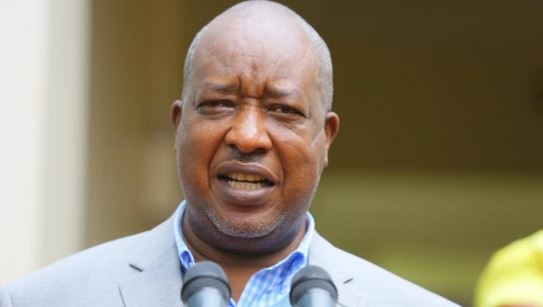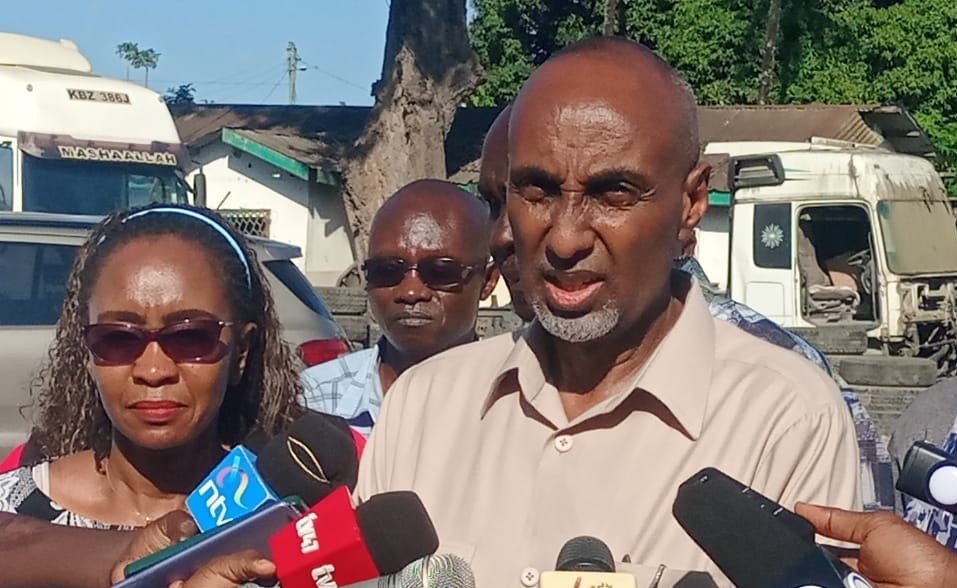At the 10th anniversary of our constitution, Kenyans have been given a chance to re-imagine the constitution.
Frankly speaking, if you look beyond the politics of the day, you will see that many democracies, including ours have turned out to be less inclusive, not as responsive, and more prone to cyclical conflict than the democracy we read about in our textbooks.
It begs the question, what is the reason to keep believing? E. Watts wrote: “No republic is eternal, it lives only as long as its citizens want it”.
We want Kenya to live, but we want a constitution that lives not only on paper but that is also in our hearts.
There is so much to reflect on. Economic inequality and government corruption- are two things that often characterise African countries.
Instead of democracy, what has been legitimised is self-serving behaviour by the ruling elite and this has eroded the legitimacy in “democratic” governments.
As resources and wealth have rotated amongst the elite- those who do not have, continue not having.
This scenario has sustained the status quo instead of transforming lives. Elites have undermined the value and trust that comes with the free market, and democracy.
In the finale of President Kenyatta’s last pronouncement, he told us- “Ten years after our progressive constitution, the moment calls us to do better. Instead of a cease-fire document that enforces a zero-sum game in which the winner takes it all, the moment calls us to create a constitutional order that will long endure…”
First things first - is this idea of amending the constitution a bad idea? A good idea? Or is it a good idea that is being promoted badly?
In order for BBI to prosper, its proponents must package and target the idea to who it matters most. Answering the question “how does a constitutional change translate into a better life for a young Kenyan?”
A story is told about Margaret Thatcher, in a BBC interview- the interviewer asked her why she overrode her cabinet’s advice on a certain financial policy.
She said something like, ‘Well, you know, when it comes to money, we women have always had to take charge of running the household. So, I think we are rather better at handling money than men.’
Many in the audience groaned in disbelief at how crass that statement was. But across Britain, one could probably hear many housewives nodding vigorously in agreement.
Those housewives understood what Mrs. Thatcher was saying. It didn’t matter whether or not what she said was true.
Margaret Thatcher knew her target market and what they wanted to hear. And What mattered was whether the target market wanted to believe her message.
The lesson here is that: A simple lie is often more powerful than a complicated truth. For most people, something that captures the imagination is more powerful than something that captures reason. Margaret Thatcher was a master of this. And that’s why she won three elections in a row. This is because believability beats truth.
At first glance it seems like the best strategy would be to get the masses to buy into this idea of constitutional change. It is said that a good strategy is constantly asking “what’s in it for them?”
If one can answer this, then one can get a good deal of things done. But this strategy is likely to meet resistance, because often the masses don’t know what they want or what is good for them.
In the book Predatory Thinking by Dave Trott, he says that good strategy has people seeing the forest from the trees, getting people to see the bigger picture is crucial.
And this is where the President’s thought leadership will kick in, getting Kenyans to see or be convinced of the bigger picture.
More so, to get Kenyans to see the urgency of it all. While everyone believes that their bit of the constitutional conversation is the most important, no one is standing back and looking at the big picture.
Everyone will be so concerned with getting every detail exactly perfect. That they will forget the purpose of what they are doing. They will be so concerned with the ‘form’, that they forget the ‘function’.
It is expected that there will be factions opposing constitutional change, they will say that we have not yet even implemented and lived up to the current constitution, so why change it?
To them I say – that there is a failure somewhere in the current constitution - we see this in the leadership structure and how it has produced certain policies.
The war on the gender principle was seemingly lost, as consecutive houses refused to admit it.
The question remains should parliament be dissolved? Will the powers that be, be brave enough to obey?
Those who resist elite consensus – are asking how the privileged can be overthrown- would a parliamentary model be the answer to their issues?
There are many reasons why a change is due, and we should not tire until we get it to fit our complex reality.
Then there are those that will hijack the constitution amendment process and use it to divide the nation.
These are who Niccolò Machiavelli referred to as merchants of conflict: “It is profoundly dangerous when a politician takes a step to undercut or ignore a political norm, it’s extremely dangerous whenever anyone introduces violent rhetoric or actual violence into a republican system that’s designed to promote compromise and consensus-building.”
They will want to stop a compromise and middle ground from being found, and we should call them out from the very beginning.
For those who can be convinced about constitutional change- the best way to get this idea across will involve intentional communication to the Kenyan public, communication that is geared to transformative change.
Creating basic awareness- explaining what you are trying to do, checking whether the public gets it (is the message being pushed consistent with their experience?), do they believe? (What is in it for them?).
The strategy will require various groups of people. Getting ‘willing collaborators’ to champion the cause, and ‘personally committed reformers’- those who can create value if included in the front end of decision making. Acknowledging all the while that the majority will be ‘hooligans/spectators- and to this group one must be instructional, telling the ‘many’ what has essentially been decided by the ‘few’.
Despite all of this, there are many things to celebrate with the new constitution. The unsung hero- devolution.
Devolution hasn’t been easy and won’t be easy but Kenya is on the right path. Whereas our neighbours in Uganda once decentralised only to re-centralise a few years later, we must keep pushing the boundaries.
Any attempt to make the 47 counties vehicles of local economic development should be championed in any new iteration of the constitution.
Furthermore, a post-Covid-19 Kenya will be fundamentally changed, and we need to navigate this new future.
Like the story of Exodus, we can create a society of freedom, of affluence. And yes, although it is hard to fix a roof during a storm – we should not let this crisis go to waste. A few dreamers have seen that there is better to come for Kenya, after all, mountains are better viewed at a distance.
Professor Brian Levy (John Hopkins University) once emphasised to me that the search for a useful governance development paradigm for Africa is still an important one.
It is often difficult to find solid ground between large, idealistic but attainable visions on the one hand and an often-dispiriting reality on the other!
But that always, and everywhere effective and ethical leadership is the key to moving things forward. I have a bias for optimism…Kenya is getting it done, we will get there eventually.
“We have to bear in mind that nothing is harder to organize, more likely to fail, or more dangerous to see through, than the introduction of a new system of government” Niccolò Machiavelli
Faith is a Development Economist and Consultant, passionate about Political Economy. Engage with her on Twitter @semasana or email her [email protected]






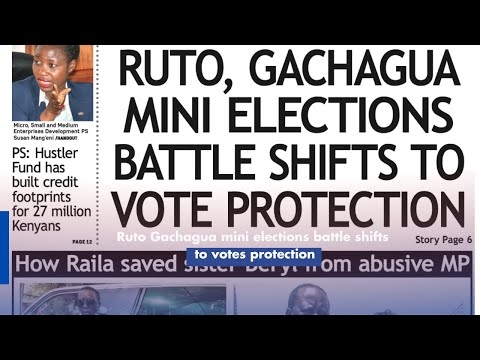

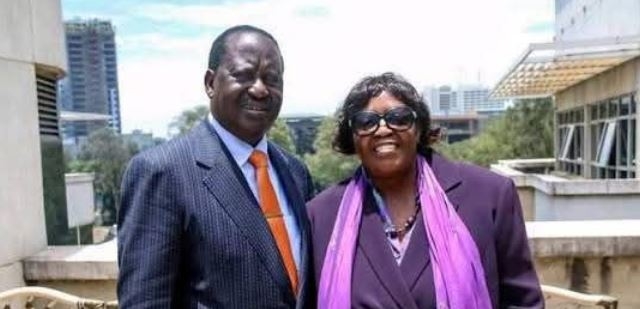
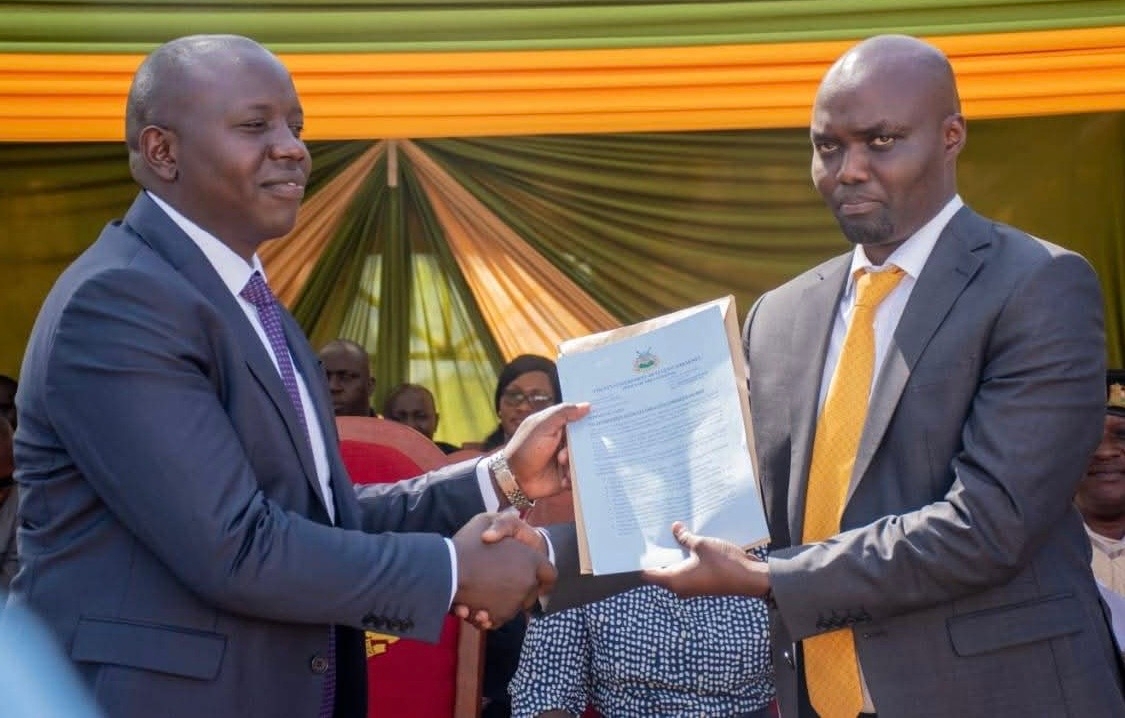


![[PHOTOS] Family, friends receive body of Raila’s sister, Beryl](/_next/image?url=https%3A%2F%2Fcdn.radioafrica.digital%2Fimage%2F2025%2F11%2Fdfe6a9bf-ede1-47a4-bdc0-4f564edb03dd.jpeg&w=3840&q=100)
